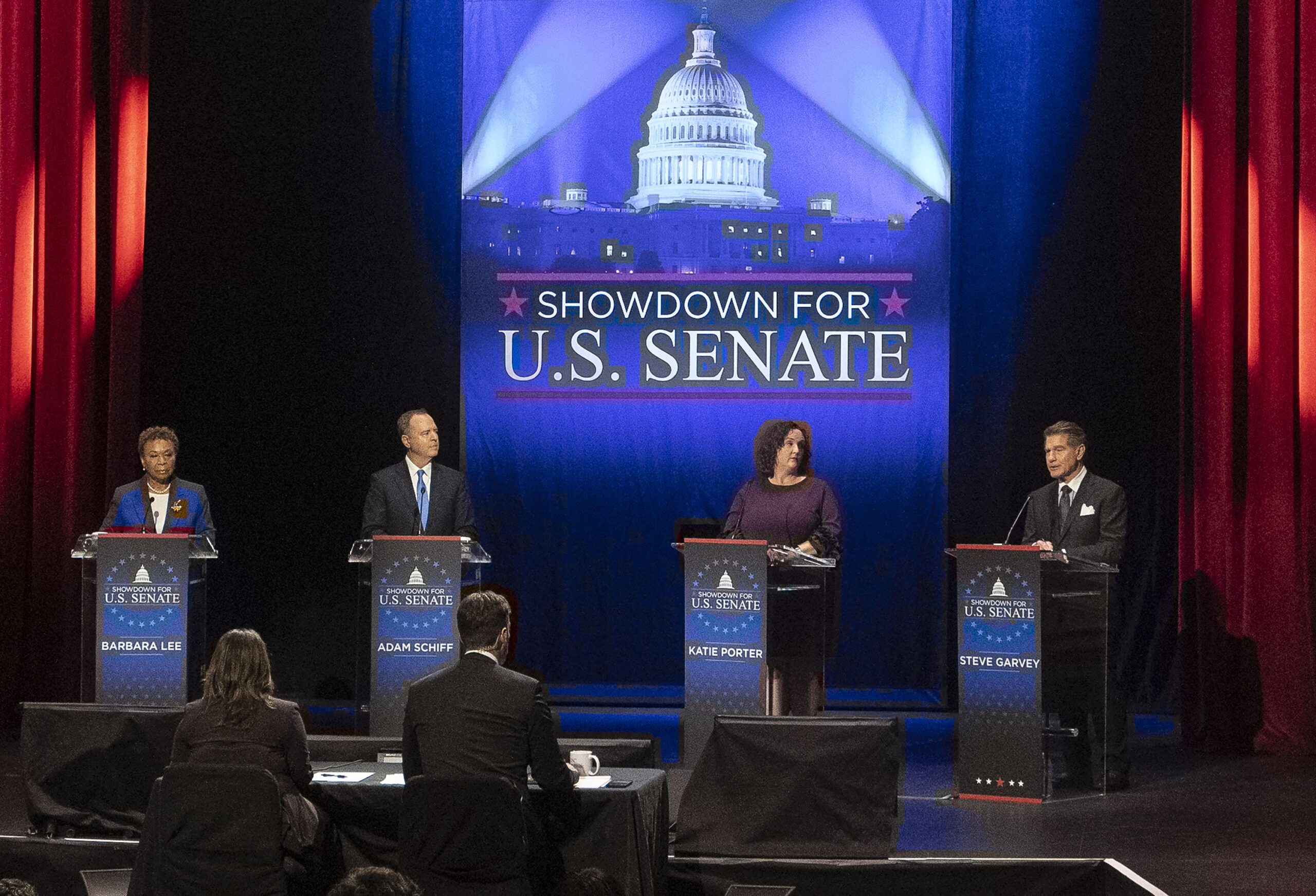Four years after his pivotal role in Donald Trump’s first impeachment trial, California Rep. Adam Schiff is now leading the race for a new position: US senator. As the state’s open primary approaches this Tuesday, Schiff has consistently held a slight lead in the polls, outpaced his competitors in fundraising, and invested over $30 million in advertising.
He enjoys the support of a significant portion of the state’s Democratic establishment, including 75% of California’s Democratic US House delegation, former House Speaker Nancy Pelosi, and former US Sen. Barbara Boxer. The most prominent Republican contender, a former baseball player who has not aired a single TV ad, may have enough party support to advance to the general election, partly due to Schiff’s ads labeling him as “too conservative.”
Under California’s primary system, all candidates compete on the same ballot with the top two vote-getters, irrespective of party, advancing to November. In a state where registered Democrats outnumber Republicans 2-to-1, Tuesday’s result could either set up a grueling Democrat-on-Democrat battle in the fall or put one of the three Democratic members of the House on a fast track to the Senate.
Choose your fighter
The campaign kicked off in earnest early last year with Schiff, Porter, and Lee vying for Democratic Sen. Dianne Feinstein’s seat. After Feinstein’s death in September, Gov. Gavin Newsom appointed Laphonza Butler, president of EMILY’s List, to the seat. Butler announced shortly after that she would not run for a full term.
Californians face a double vote for Senate: once to fill the remainder of Feinstein’s term after the general election and again for a full six-year term starting in January 2025. In both instances, Democratic voters will grapple with a challenging question: What kind of liberal do they want to promote to the Senate?
Attack ads
California’s top-two system has led to unusual rivalries and one-sided alliances between the top candidates in the race. Schiff and a super PAC backing him have spent millions on ads painting Garvey as a conservative in what political strategists say is a clear attempt to drive up Republican support.
Porter, who called Schiff’s ads elevating Garvey among Republicans a “brazenly cynical” strategy, has since started attacking Early as the real MAGA Republican in the race, hoping to cut into any lead Garvey has over her. Both Schiff and Porter have defended their strategies.
Split vote
While every Republican vote for Early could help Porter, she’s splitting a different voting bloc with Lee: progressives. Though Lee is trailing in polling and fundraising, she has racked up key endorsements from groups such as Reproductive Freedom for All, formerly known as NARAL Pro-Choice America, and Gen-Z for Change.
If neither Porter nor Lee make it into the top two, California – the first state to send two women to the Senate simultaneously – will have no women in its two-member Senate delegation for the first time in 30 years. California Democrats have had mixed reactions to that possibility.
But if two Democrats make it to November, the real contest would be just beginning. “Sometimes people get mad at California Democrats for actually having a real race, because they think that that California money should go elsewhere, and they view us as a piggy bank,” said Democratic state Sen. Scott Wiener, a Porter backer. “The idea that California should not be allowed to have a robust Democrat versus Democrat contest, because it might be expensive, I just don’t agree with that.”
CNN’s David Wright contributed to this report.

